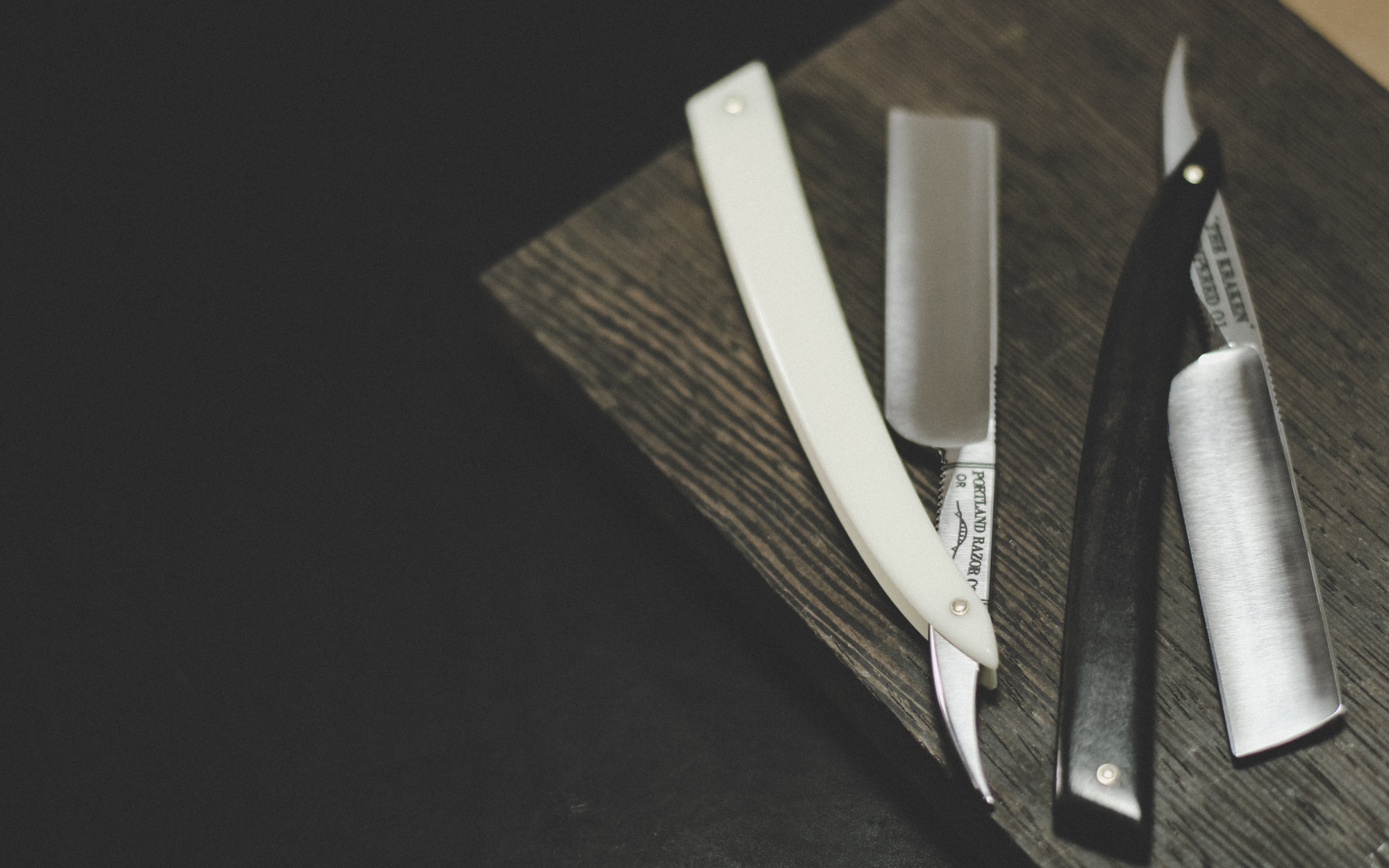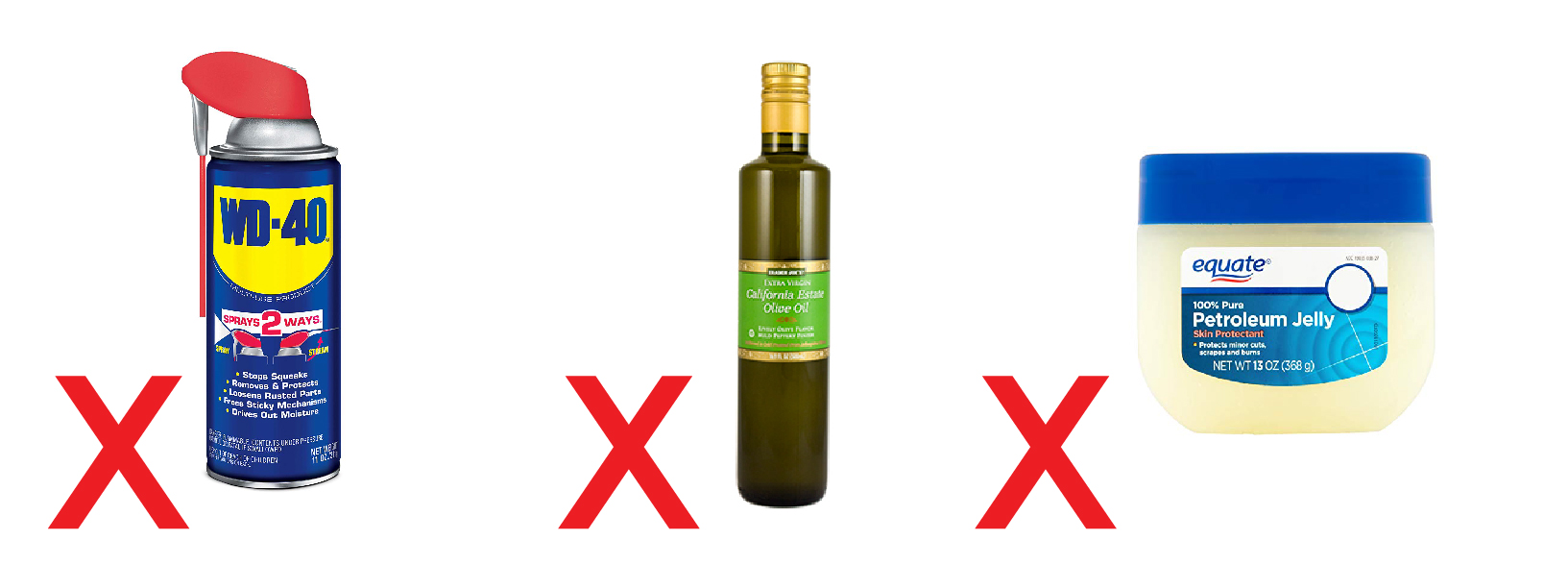A straight razor demands respect; take care of your tools, and they will take care of you! With proper maintenance, a quality straight razor can last several lifetimes. The more you use your razor, the more important routine maintenance becomes. Besides stropping and honing, oiling your razor is an important step to consider in protecting your razor’s longevity.
When developing our Cascade Steel straight razors, we reached for modern materials with superior edge retention and stainless properties, which means frequent oiling would be redundant. Unfortunately, for 200 years the best razors were made with high-carbon steels. High carbon steels get incredibly hard and sharp, but can rust if water even enters the room! Since wet shaving is inherently--well, wet, rust prevention is an important step for a majority of straight razor users. This includes those using vintage straight razors and razors by Portland Razor Co. made with O1 high-carbon tool steel. In this article, we review some of the best and worst oils for straight razor rust-prevention.
A good razor oil:
Displaces water effectively
Is skin safe
Is safe for common scales materials and finishes
Does not resinify
Won’t spoil or go rancid
Recommended Straight Razor oils
Camellia Oil - Great
Refined camellia oil (also known as tea seed oil) is a fantastic all-around razor oil. It is a light, skin safe, colorless oil with low viscosity which does a good job of displacing water and is easy to apply. Provided it is well refined, it shouldn’t resinify or spoil.
Mineral Oil - Great
Mineral oil is a widely available and very effective razor oil. Low to medium viscosity, skin safe, safe for scales materials, does not resinify, won’t spoil, petroleum product.
Ballistol - GREAT
Ballistol is marketed as an eco-friendly alternative to petroleum products like mineral oil and WD-40. It is skin safe, biodegradable, low viscosity, aerosol. In general, Ballistol will not resinify, however we have encountered a few instances where it reacted negatively with other oils and became sticky.
We don’t recommend…
WD-40 - Not Recommended
WD-40 works, but keep it off your skin and scales. We like it because there’s a good chance you already have some at home! The “WD” literally stands for “Water Displacement,” and it does that job really well. It also contains solvents which help break up old grease and rust but can be harmful to scales. It is not listed as a known carcinogen but is irritating to some when in contact with the skin or if fumes are inhaled. For these reasons, we wouldn’t recommend it as your go-to razor oil, but it works in a pinch or if performing a restoration of a razor with lots of build-up on it.
Olive Oil - Not Recommended
Yes, you can prevent rust with olive oil! But, should you? It has medium viscosity, it displaces water, you probably have some in your kitchen, and it is obviously skin and food safe... It can also resinify fairly quickly and will go rancid over time. You should avoid any culinary misadventures in the bathroom by using olive oil (or any other cooking oil) to prevent rust only in emergencies.
Petroleum Jelly - Not recommended (Worst option)
You can do a lot of things with petroleum jelly. Sure, you can slather it all over your straight razor and successfully keep it from rusting… but please don’t. The goopy stuff sticks well to your straight razor to displace water, but it attracts and holds everything else it might come into contact with such as dirt or hair. It’s very much a bummer to clean off as well, requiring soapy water or solvents in all the razor’s nooks and crannies (which is exactly where you don’t want water and solvents!). Cleanup is an important consideration since removal of oils is a necessary step prior to honing to keep contaminants out of your expensive water stones.
We hope you found this review of razor oils helpful! Did you learn something new? Do you have a question about razor oils? Leave it in the comments below! If you are ready to take the next step in learning to care for your razor, consider signing up for an upcoming honing and maintenance class. There you will have the benefit of hands-on instruction with a Portland Razor Co razorsmith for more specific and nuanced guidance.



